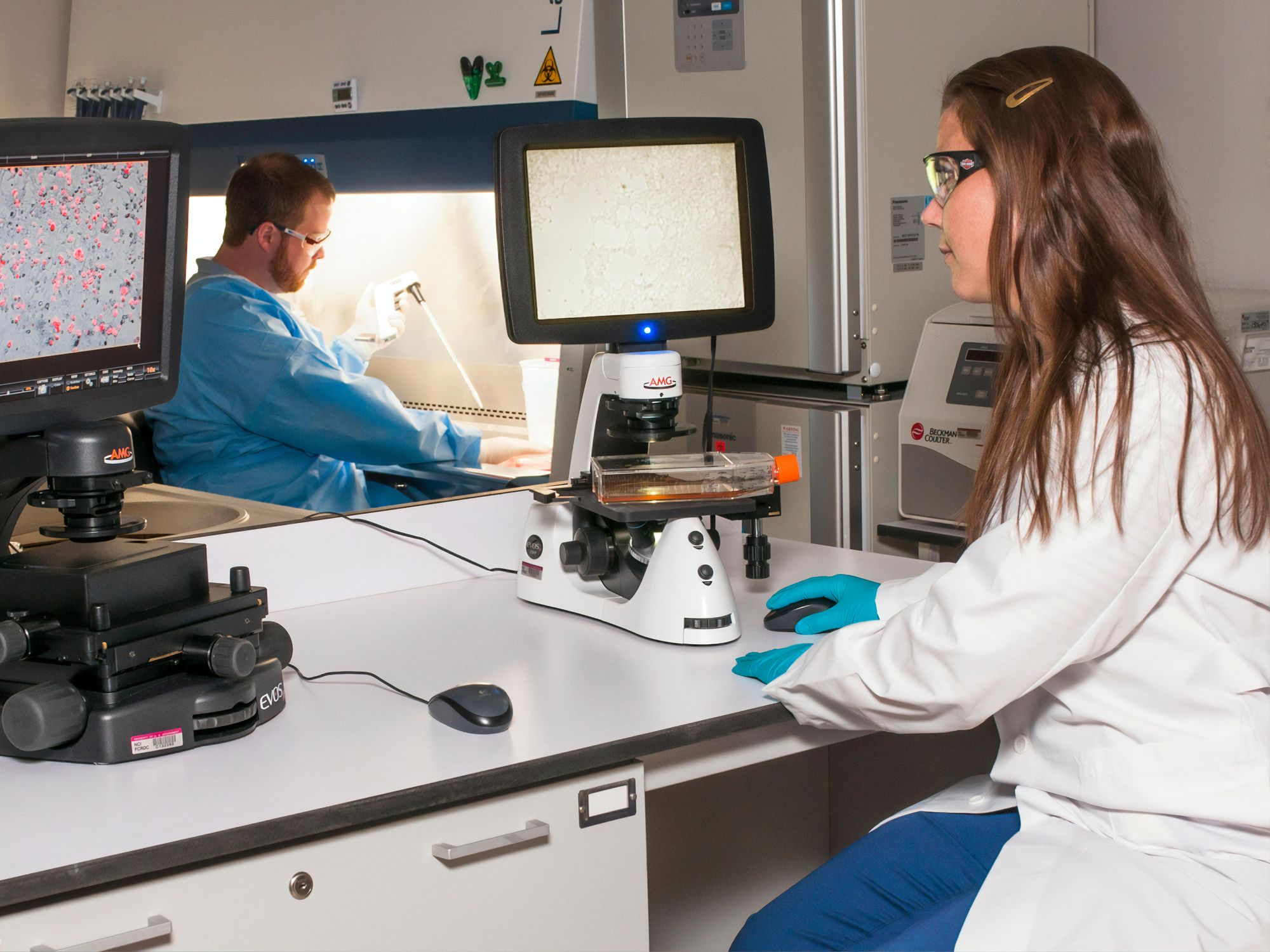How Preveta Could Change the Game for Early Cancer Detection
Breanna de Vera is dot.LA's editorial intern. She is currently a senior at the University of Southern California, studying journalism and English literature. She previously reported for the campus publications The Daily Trojan and Annenberg Media.

To diagnose cancer, timing is everything.
Victor Lee, a data scientist and entrepreneur, and his wife Shirley Lee, who is a clinician and health care executive, know this better than most — in 2015 one of their closest friends, Becky Ramos, was diagnosed with Stage 4 ovarian cancer.
"Becky started exhibiting symptoms in late 2014, and saw her primary doctor in January 2015," said Shirley Lee in an email. "After three months of insurance issues, dropped balls, we finally got all of her test results and the right referral to the surgeon. That's when we got the tragic news from him that she was already at stage 4 and had she come in two months earlier, he could have operated on her."
The health care system failed her. Now, the Lees are trying to rectify it with Preveta, an AI software for providers aimed at making connections for doctors about health patterns, enabling remote care and flagging potential barriers such as insurance issues, among other services. The idea is to get urgent and sometimes overlooked care to patients often ignored by the health care system labyrinth — especially those who are Black, Latino or living in health care deserts.
Becky could have used Preveta. The 41-year-old mother of two children who brought laughter, joy and pride in her Guatemalan heritage to the Lees' lives did not get her diagnostics, authorizations and referrals in time. The surgeon told the Lees that had she come in earlier, he might have been able to save her life.
According to the National Cancer Institute, factors like race, location and education create striking disparities in outcomes for cancer patients. People of color are disproportionately affected: There are higher rates of cervical cancer incidence and death among Hispanic and African American women, higher rates of kidney cancer among Indigenous Americans and Alaska Natives and higher rates of liver cancer among Asian and Pacific Islanders than other racial and ethnic groups.
"Becky fits that profile — she's a minority, she's a woman and lived in a rural area where access to care was not so great," Victor Lee said.
Their platform works with providers, using AI algorithms to integrate data about patients and diseases. Preveta is currently used by six large medical groups and serves about 2,000 patients.
Its primary focus is urology, particularly chronic conditions and prostate cancer. These illnesses are navigated by clinicians in a way that is very structured, an algorithmic way that the software can supplement.
By knowing how certain demographics are affected by diseases, the platform assists with diagnosis. It suggests which tasks — including recurring tests — doctors can delegate to their team, and what steps can be taken to improve a patient's quality of life.
"Something that should have taken about a couple weeks to get everything in line in terms of getting her the right test, getting the insurance to authorize and pay for certain things, to refer her to the right specialists so that we knew something was happening to her; we thought it was cancer — it took three months," Lee said.
The Lees hope that their software can eventually help mitigate the disparities in health care.
Preveta will get a boost for their efforts. The company closed a $2 million seed funding round this week to continue development of their software and expand distribution. The round included investors MaC Venture Capital and TSVC, and it comes only a few months after their completion of the Techstars LA accelerator.
A number of other Los Angeles companies are also working in the health care AI field including Pearl, which focuses on dental health, and PatientPop, which helps providers grow health providers' businesses. Preveta's focus on oncology was in part determined by its ongoing and sometimes recurring nature — quality of life for patients can differ starkly, depending on provider's decisions.
Preveta hopes to expand its software to gastrointestinal illnesses, and then other types of oncological illnesses.
"There's a lot of interesting diseases and treatments in the GI space that follow this algorithm approach to data driven care coordination, and then we're also looking at the rest of oncology — specifically breast cancer, lung cancer, skin cancer," Lee said.
- cancer-detection - dot.LA ›
- Quantgene Releases At-Home Saliva Test to Help Detect Cancer ... ›
- Quantgene Aims to Detect Cancers Far Earlier Using Data - dot.LA ›
- ImaginAb Aims to Help Our Immune Systems Better Detect Late-Stage Cancer - dot.LA ›
- ImmixBio Files for an IPO to Expand Its Cancer Therapies - dot.LA ›
- Medical AI Startups Are Booming, But Doctors Are Skeptical - dot.LA ›
- InBrace Dental Startup Raises $102 Million Series D - dot.LA ›
- ImmPACT Bio Raises $111 Million to Advance Cancer Therapies - dot.LA ›
- Product Science Lands $18M, Preveta Gains $6.2M - dot.LA ›
Breanna de Vera is dot.LA's editorial intern. She is currently a senior at the University of Southern California, studying journalism and English literature. She previously reported for the campus publications The Daily Trojan and Annenberg Media.





 Image Source: Skyryse
Image Source: Skyryse